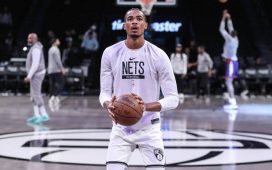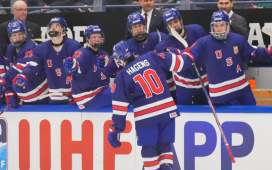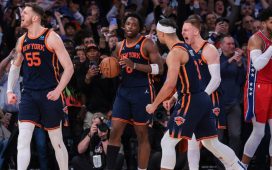Keith Lincoln, a star of the San Diego Chargers in their early years, whose sensational performance in the 1963 American Football League championship led them to the only title in their history, died on Saturday in a hospital in Pullman, Wash. He was 80.
His son Lance said the cause was congestive heart failure.
Lincoln was a slashing running back and talented receiver who in 1963 had the best of his three seasons with the Chargers, who had drafted him out of Washington State University.
The Chargers were an elite franchise in the A.F.L., which was established in 1960 to challenge the long-established N.F.L. Sid Gillman, the Chargers’ head coach, devised an offense featuring Lincoln, the flanker Lance Alworth and the halfback Paul Lowe.
In the 1963 championship game, at Balboa Stadium in San Diego, the Chargers faced the Boston Patriots, who had one of the league’s top defenses. (They were renamed the New England Patriots in 1971.) The game became Lincoln’s stage.
On San Diego’s first series, Lincoln ran for 56 yards, setting up the Chargers’ first touchdown. On his second carry in a subsequent series, he took a pitchout from the quarterback Tobin Rote and scampered 67 yards for a touchdown. With the Chargers leading the Patriots, 38-10, he scored a second touchdown on a 25-yard pass from John Hadl, Rote’s backup. The Chargers won, 51-10.
“The whole game plan was built around him because of the defense Boston had,” Alworth said in an article about Lincoln that was posted on the Chargers’ website on Sunday. “They were keeping us from running wide with Paul Lowe, so we were running right up the middle on them and faking wide — going up the middle — and it was working.” Lincoln, he added, “had a good day.”
Lincoln accounted for 349 yards — rushing for 206, catching passes for 123 and completing a pass for 20 — a record for an A.F.L. or N.F.L. player that stood until 1971, when Ed Podolak of the Kansas City Chiefs gained 350 yards running, receiving and returning kickoff and punt returns in a divisional playoff game against the Miami Dolphins.
The Chargers returned to the A.F.L. championship game the next season, facing the Buffalo Bills. Lincoln started well, bursting through the Bills’ defense for a 38-yard run that helped the Chargers take the lead, 7-0. But midway through the first quarter, Lincoln broke a rib on a crunching tackle by Mike Stratton, a Bills linebacker. Lincoln did not return, and the Bills won the title, 20-7.
“Buffalo still loves that hit,” Lincoln said with a laugh in an interview with the newspaper The Spokesman-Review in Spokane, Wash., in 1995.
Keith Payson Lincoln was born on May 8, 1939, in Reading, Mich., and moved to Monrovia, Calif., when he was young. His father, Payson, was a rancher, and his mother, Ernestine, was a homemaker. Keith turned down a scholarship from U.C.L.A. to attend Washington State, in Pullman, where he set what were then career records for rushing and punting average at the university.
While there, he was nicknamed the Palouse Moose, a reference to a pastoral region in the Northwest.
Lincoln was drafted by the Chargers and the Chicago Bears of the N.F.L. in 1961 and chose to play nearer to home. He recalled scrimmaging against the Bears as a member of the College All-Star team before a preseason game in 1961 against the Philadelphia Eagles.
“We kicked the hell out of them,” he told The Spokesman-Review.
It was the ideal attitude for the rivalry between the A.F.L. and N.F.L, which announced their merger in 1966 but did not finalize it until 1970.
Lincoln never played in the combined league. He was traded to the Bills in 1967, where he had a productive season, but they waived him near the end of the 1968 season, and he returned to the Chargers, where he played in one game.
Over eight seasons, he rushed for 3,383 yards and caught passes totaling 2,250 yards. He was a two-time All-Pro selection.
After retiring, he was an assistant coach at the University of Idaho and then at Washington State in the early 1970s. Soon after, he was hired as associate director of Washington State’s alumni association and in 1978 became its executive director, serving until 2003.
In addition to Lance, who was named after Alworth, Lincoln is survived by another son, Keith, who is known as Kip, and five grandchildren. His wife, Bonnie Jo (McKarcher) Lincoln, died this year.
After the Chargers’ victory in the 1963 A.F.L. title game, one of the losing Patriots had nothing but praise for Lincoln.
“Lincoln is the best back in the league — bar none,” Bob Dee, a defensive end, said. “About five of us hit him and couldn’t bring him down.”







